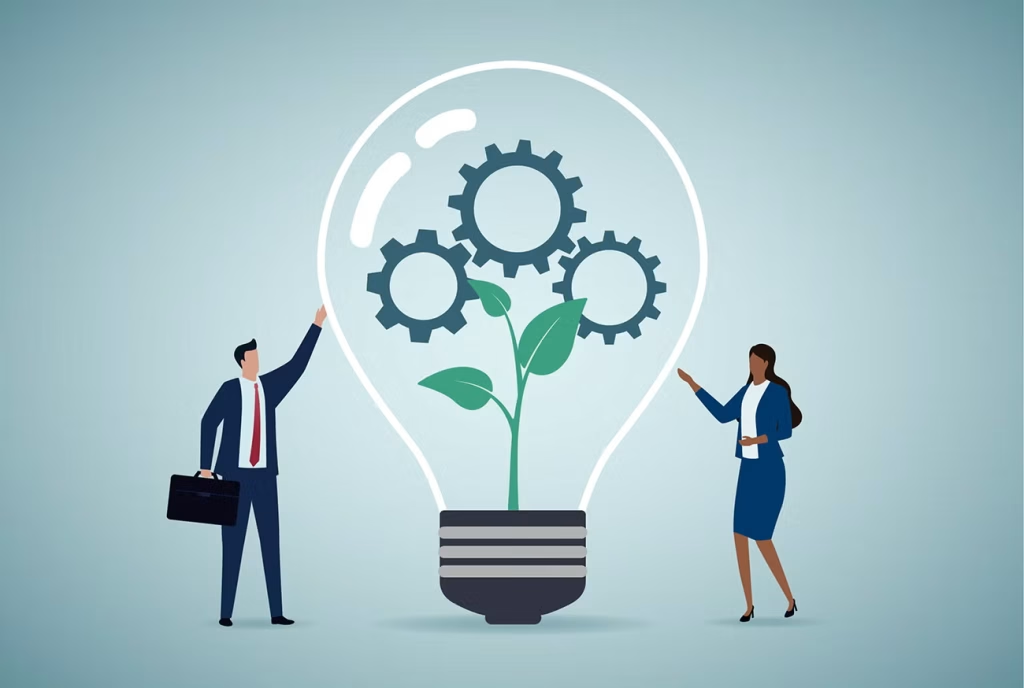Business has always been about adaptation. From the industrial revolution to the digital age, companies that embrace change survive, while those that resist risk being left behind. Today, the pace of transformation is faster than ever, fueled by globalization, technological disruption, and evolving consumer expectations. For entrepreneurs, leaders, and organizations, the question is no longer whether to adapt but how quickly and effectively.
This article explores the major forces reshaping business in the 21st century and outlines strategies that can help companies stay competitive in an unpredictable environment.
Globalization and the Expanding Marketplace
The world has become increasingly interconnected. Businesses that once operated within national borders now compete in a global marketplace. E-commerce platforms allow even small startups to sell internationally, while large corporations establish supply chains that span continents.
This interconnectedness brings enormous opportunities. Companies can tap into new customer bases, source materials at lower costs, and leverage diverse talent pools. At the same time, globalization introduces new complexities. Cultural differences, currency fluctuations, and geopolitical instability can disrupt operations.
To succeed, businesses must balance global reach with local sensitivity. That means tailoring products to regional markets, respecting cultural values, and building relationships with local stakeholders. Companies that manage this balance well can expand globally while maintaining trust and relevance.
Technology: The Great Disruptor
Technology is revolutionizing business operations in ways few could have imagined two decades ago. Artificial intelligence (AI), automation, blockchain, and cloud computing are transforming industries from finance to healthcare.
For example:
-
AI helps companies analyze customer behavior and deliver personalized experiences.
-
Automation increases efficiency by handling repetitive tasks in manufacturing and logistics.
-
Blockchain enhances transparency and trust in financial transactions and supply chains.
-
Cloud platforms allow small firms to access tools once reserved for large corporations.
While technology brings efficiency, it also creates challenges. Cybersecurity risks, rapid obsolescence, and ethical concerns around data privacy must be addressed. Businesses that embrace digital transformation while managing these risks will position themselves ahead of competitors.

Shifting Consumer Expectations
Modern consumers are not the same as they were 20 years ago. They are more informed, connected, and demanding. With information at their fingertips, customers expect transparency, personalization, and immediate service.
Convenience and trust have become central. A single bad review can damage a brand’s reputation, while positive customer experiences can lead to loyalty and advocacy. Companies like Amazon and Tesla have raised consumer expectations by delivering seamless, customer-first models, forcing other businesses to follow suit.
To adapt, businesses must invest in customer relationship management (CRM) systems, improve digital communication, and focus on creating meaningful experiences rather than just transactions.
Sustainability as a Business Imperative
Sustainability is no longer a “nice-to-have”—it is a business necessity. Consumers, investors, and governments are holding companies accountable for their environmental and social impact. Climate change, resource scarcity, and growing social awareness demand responsible practices.
Sustainable businesses not only reduce environmental harm but also strengthen their long-term competitiveness. For example, companies that adopt renewable energy, reduce waste, and embrace circular economy models often save costs and attract environmentally conscious customers.
Corporate social responsibility (CSR) initiatives—such as supporting local communities, promoting diversity, and ensuring ethical supply chains—also enhance brand reputation. In the future, businesses that ignore sustainability risk losing relevance and trust.
The Workforce of Tomorrow
The modern workforce is evolving. Millennials and Gen Z employees prioritize purpose, flexibility, and work-life balance more than previous generations. Remote and hybrid work models, accelerated by the COVID-19 pandemic, have reshaped expectations.
To retain talent, businesses must go beyond salaries. They must create inclusive cultures, provide opportunities for growth, and foster meaningful work. Companies that support diversity, equity, and inclusion are better positioned to attract top talent and build innovative teams.
Lifelong learning is another crucial factor. As industries change, employees must continually update their skills. Businesses that invest in training and professional development ensure that their workforce remains adaptable and future-ready.
Entrepreneurship and Innovation
Entrepreneurship has become a driving force in today’s economy. With lower barriers to entry thanks to digital tools, individuals can launch startups with minimal resources. Innovation is no longer limited to established corporations; small businesses often lead the way with disruptive ideas.
The gig economy is also reshaping business models. Freelancers, consultants, and independent creators contribute significantly to the workforce, providing flexibility for both businesses and workers. However, this shift raises questions about job security, benefits, and worker protections.
For both startups and established firms, innovation is critical. Companies must cultivate a culture that encourages experimentation, accepts failure as part of learning, and adapts quickly to changing circumstances.
Financial Management and Risk Preparedness
Sound financial management remains the backbone of any successful business. In a volatile global economy, businesses must plan for risks ranging from inflation to supply chain disruptions. The COVID-19 pandemic revealed how fragile some business models were, underscoring the importance of resilience.
Key strategies include:
-
Diversification of supply chains and revenue streams.
-
Emergency funds to handle unexpected downturns.
-
Smart investments in technology and talent.
-
Risk management systems to anticipate and mitigate potential threats.
Financial agility allows businesses not only to survive crises but also to seize opportunities when competitors falter.
The Future of Business: Key Trends
Looking ahead, several trends will continue to define business success:
-
Artificial Intelligence Everywhere – From chatbots to predictive analytics, AI will become standard across industries.
-
Decentralized Work – Remote and hybrid work models are here to stay, reshaping how organizations function.
-
Green Business Models – Sustainability will drive innovation in products, packaging, and operations.
-
Data as Currency – Businesses that can responsibly collect and leverage data will have a major advantage.
-
Socially Responsible Brands – Companies will be judged not just on profit but on their contribution to society.
Adapting to these trends will require agility, vision, and a commitment to both profit and purpose.

Conclusion: Thriving in a Changing World
The business world is more dynamic than ever before. Globalization, technology, consumer expectations, sustainability, and workforce changes are reshaping how companies operate. In this environment, the most successful businesses will be those that adapt quickly, innovate continuously, and align financial success with social and environmental responsibility.
Ultimately, business is not just about profit—it is about creating value for stakeholders, employees, customers, and society as a whole. By embracing change, fostering innovation, and staying committed to purpose, businesses can thrive in an uncertain but opportunity-filled future.



